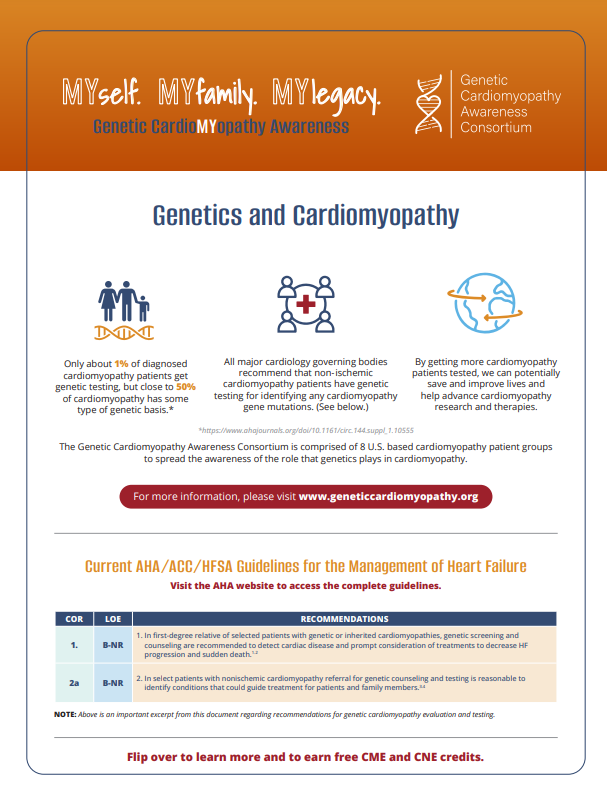Helping You Feel Empowered
We want you to feel educated and empowered when talking with your cardiologist or primary care physician, especially as it relates to genetic cardiomyopathy and genetic testing. It may be hard to believe, but your cardiologist or physician may not understand or be aware of the role that genetics plays in cardiomyopathy and how it might affect you and your family.
This lack of knowledge about genetics as it relates to cardiomyopathy is one of the biggest factors in the very small percentage of cardiomyopathy patients receiving genetic testing. Remember only 1% of diagnosed cardiomyopathy patients get genetically tested.
Did You Know?
Current Heart Failure Guidelines require your physician suggest genetic testing to all patients who have been diagnosed with cardiomyopathy with no known cause.
Talking with Your Cardiologist or Physician about Getting Genetic Testing
Who should get genetic testing?
- If you have been diagnosed with cardiomyopathy and it was not caused by a heart attack or coronary heart disease.
- If someone in your immediate family has been diagnosed or tested positive for inherited cardiomyopathy through genetic testing.
- If one or more close relatives (especially younger than 40 years old) has died unexpectedly from cardiac arrest or heart attack.
What if my cardiologist declines or is unable to order a genetic test?
- If you suspect that you might have genetic cardiomyopathy and your physician declines or is unable to get you genetically tested, do NOT let that stop you. You can go through a genetic testing company and chat with a licensed genetic counselor today. Simply click the button below to begin exploring genetic counseling and testing companies that make the process simple and affordable.
- We have also created an informational flyer that describes genetics and cardiomyopathy and we encourage you to share this with your cardiologist or medical providers. Click here to access this flyer.
When I get genetically tested, should my results be shared with my doctor?
- We recommend you share your results (whether positive, negative or inconclusive) with your physician or cardiologist. However, it is your decision whether or not you would like to share your results.



